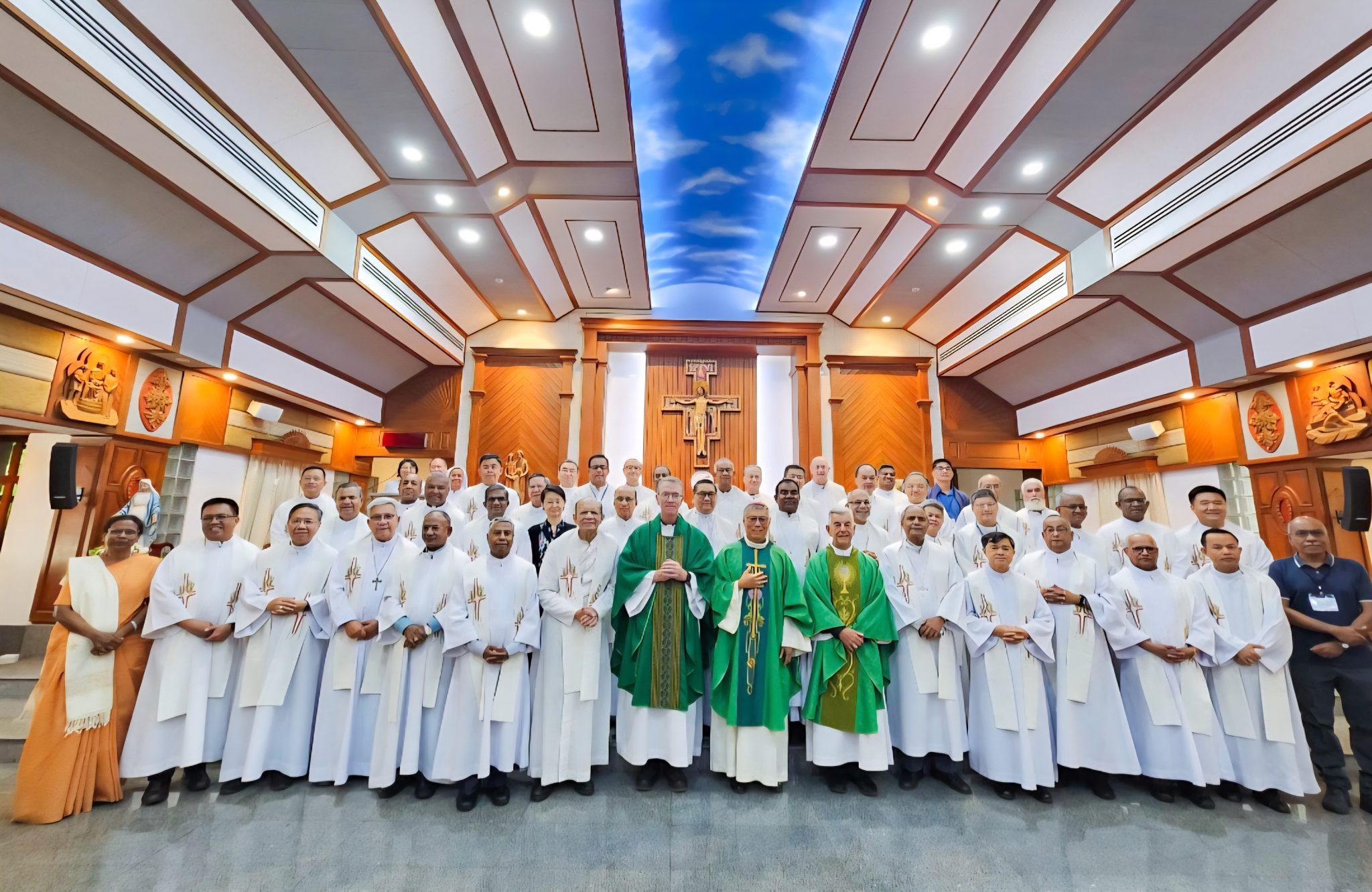FABC: Asian bishops in Bangkok, putting synodality into practice
More than 50 bishops and Church leaders from the Federation of Asian Bishops' Conferences met in Samphran from 22 to 26 September. The focus was on the Synod's final document and the Bangkok Document. Discussions included the role of local Churches and communion with the poor and neighbouring faiths. The 12th Plenary Assembly will be held in Bali in 2026.
Rome (AsiaNews/Agencies) – Synodality was the focus of a seminar held from 22 to 26 September in Samphran, a western suburb of Bangkok.
More than 50 bishops and Church leaders from the Federation of Asian Bishops' Conferences (FABC) gathered to prepare for the 12th Plenary Assembly scheduled for June 2026 in Bali, the next stage of the synodal journey in Asia, alongside the universal Church.
The goal of the four-day meeting “was to study and understand the Final Document of the Synod together, reflect on our dioceses, and consider how the Church in Asia can put it into practice,” said Archbishop Anthony Weradet Chaiseri, vice president of the Catholic Bishops’ Conference of Thailand, speaking to Licas News.
The occasion also included a review of the Bangkok Document, released in 2022 to coincide with the 50th anniversary of the FABC, a paper deeply rooted in the global synodal process.
The Synod of Bishops of Rome inspired the meeting at the Baan Phu Waan Pastoral Training Center in Samphran. This included lectures, prayerful reflections, and sharing in small groups, while those present took part in nine group discussions focusing on three themes.
In addition to reflection on the two aforementioned documents, the meeting addressed the reception of the synodal process in Asia; the need for transparency and accountability in a synodal Church; and, as Archbishop Chaiseri stressed, enhancing Asia's contemplative approach to discernment.
The meeting came as the Catholic Church is in the implementation phase of the synodal process following the conclusion of the Synod on Synodality in 2024, which will continue until 2028, with bishops engaged alongside all ecclesial entities.
In a session on “Transparency and Accountability for a Synodal Church in Asia”, Malaysian Fr Clarence Devadass, executive secretary of the FABC's Office for Theological Affairs, mentioned the path set by Pope Francis, “Learning to be accountable to the community”.
In his address, Fr Devadass also referred to corruption in Asia. “The Church has consistently called on governments and institutions to uphold integrity, transparency, and accountability,” even though, he acknowledged, “many people have questioned the transparency and accountability of the Catholic Church due to historical, structural, and ethical concerns”.
In another discussion on the "crucial role of local churches" for synodality in Asia, Fr Vimal Tirimanna, a Sinhalese Redemptorist, called for a "conversion of bonds," as long as they are dynamic, not rigid.
“These bonds are grounded in communion and synodality, calling local Churches to move away from a static, hierarchical model toward a more inclusive vision of the People of God,” he explained.
Such ties represented are both within the Church – with poor and marginalised people, lay movements – and outside – with different Churches and ecumenical partners. “We need to begin planting the seeds of synodality in Asia today,” he said.
Philippine Cardinal Pablo S. David, president of the Catholic Bishops' Conference of the Philippines (CBCP), also spoke at the seminar, reflecting on the resonance of the Bangkok Document (2022) and the Synod's Final Document (2024).
With documents in dialogue, Card David spoke of a "providential" convergence. “The Bangkok Document was not only influenced by, but deeply embedded within, the Spirit of Synodality,” he noted.
The prelate highlighted four paths of synodality in the Asian context: understanding diversity as a gift, recognising different faiths as our "neighbor" and not the "other," promoting a Church "with" the poor, not "for” the poor, and embracing environmental conversion as a pastoral pillar.
Finally, in his homily at Mass on Wednesday, Cardinal Stephen Chow of Hong Kong said that the path of synodality is marked by humility, patience, and profound trust in God.
He invited the faithful to walk humbly with one another, despite the liveliness and frustration of some contexts. “[C]ultural changes don’t happen overnight,” he explained.
At the heart of the synodal journey remains discernment, which admits and encourages questions.
“Our emphasis on being ‘good Catholics’ has sometimes stopped us from asking questions,” he added. “It is not about accomplishment and moving on, but about staying and building relationships. Slow down. Trust requires time and respect,” he said.
17/02/2023 15:40
06/02/2021 14:49
09/12/2024 19:37
14/03/2025 17:39







.png)










